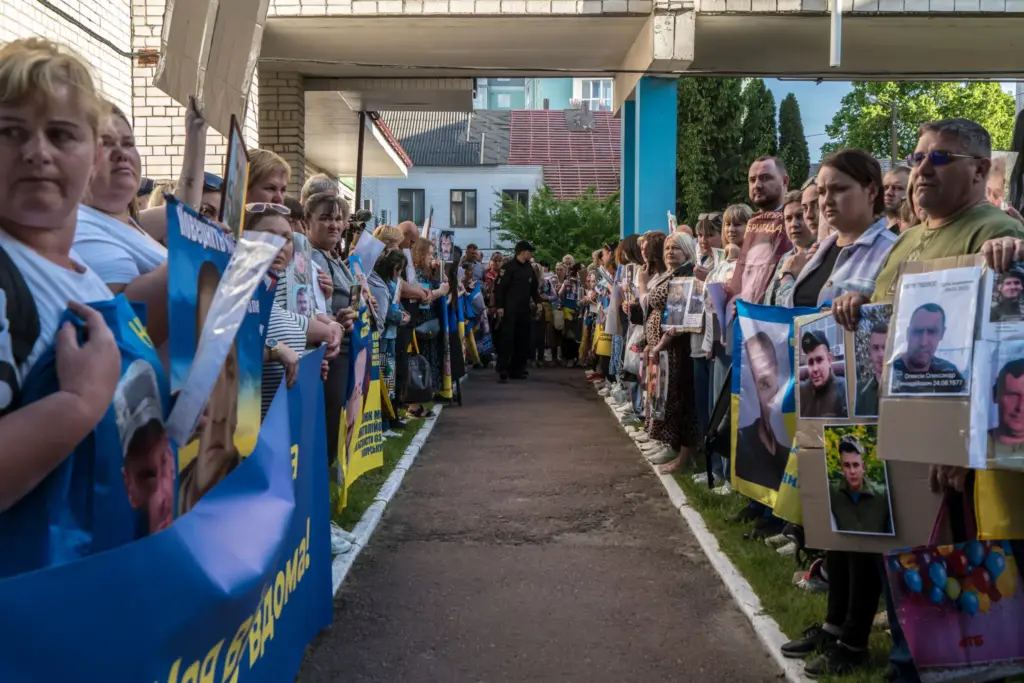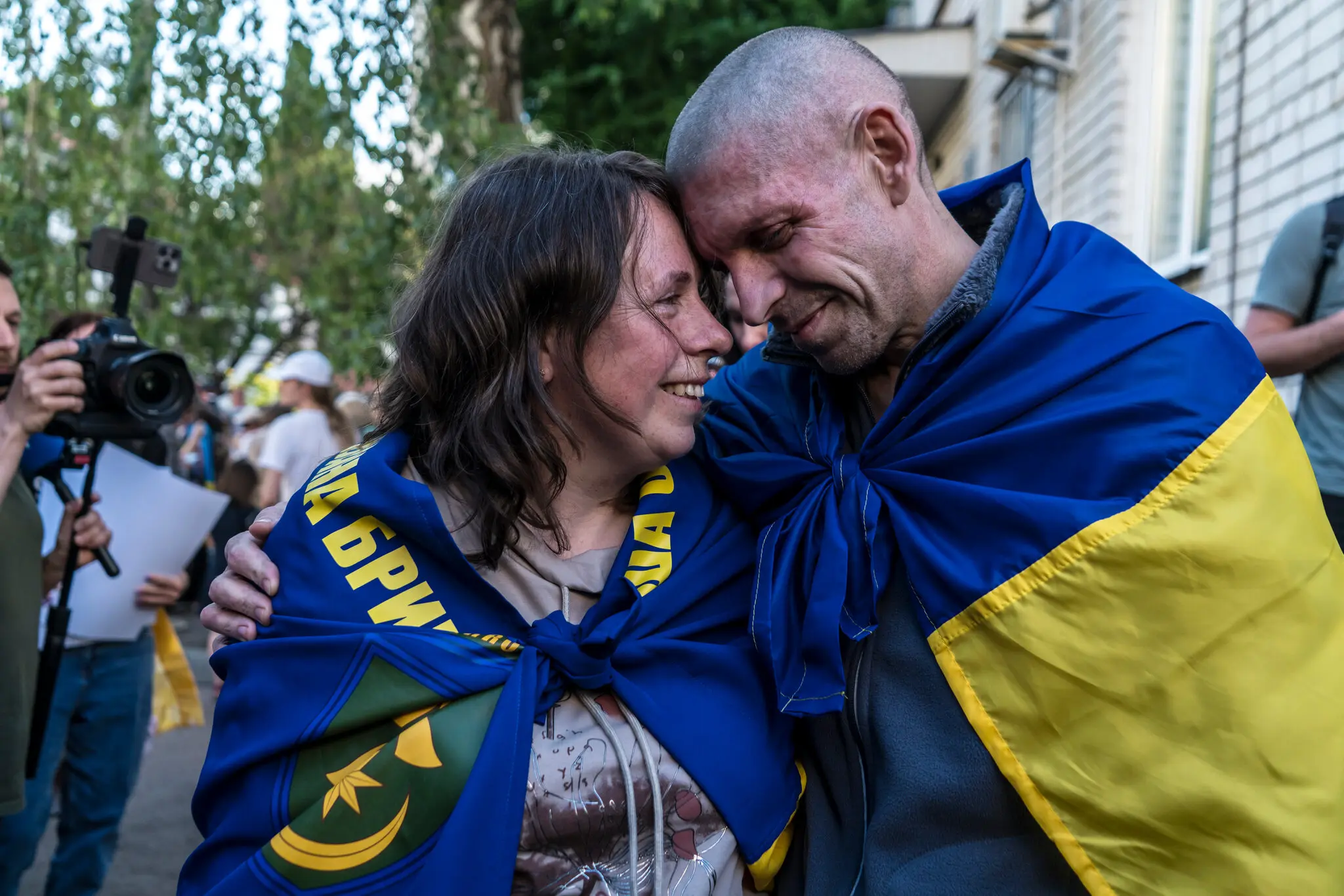In a rare display of cooperation amidst the ongoing conflict, Russia and Ukraine have initiated their largest prisoner exchange to date, with each side returning 390 soldiers and civilians. This significant development marks a crucial step towards healing for the families affected by the war, as well as a testament to the resilience of those who have endured captivity.
President Volodymyr Zelensky of Ukraine proudly announced the exchange on social media, sharing photographs of Ukrainians being returned, most of them men with shaven heads and gaunt frames, their shoulders draped in Ukrainian flags. The release of these prisoners is a direct result of agreements made during negotiations in Istanbul last week, the first time both sides have engaged in direct talks since the early months of the war.

As hundreds of families gathered at a site in Ukraine’s northeastern Chernihiv region to await the arrival of buses carrying freed service members, emotions ran high. Many family members had wrapped themselves in blue and gold Ukrainian flags, clutching pictures of their loved ones, hoping they would be included in the exchange. The reunion was an emotional rollercoaster, with some prisoners, who had been held for three years, often unaware of how the war had progressed or the fates of their families.
Families eagerly asked about the identity of those on the buses, and as the freed soldiers emerged from the hospital, many looked bewildered by the size of the crowd waiting for them. Prisoners, some held for extended periods, struggled to recognize themselves in old photographs, acknowledging the profound physical and emotional toll of their captivity.

The exchange is not only a humanitarian gesture but also a vital step towards maintaining diplomatic communication between Russia and Ukraine. Despite months of diplomacy, including the Istanbul talks and a phone call between Presidents Trump and Putin, other areas of conflict remain unresolved. However, the prisoner exchange has remained an open line of communication, with more than 60 exchanges taking place over the past three years.
The treatment of prisoners is a deeply resonant issue within Ukraine, sparking both anger and sorrow as reports emerge of Russia’s systemic mistreatment and torture of soldiers. According to Andriy Kostin, Ukraine’s prosecutor general, an estimated 90% of Ukrainians in Russian captivity reported being subjected to torture, rape, threats of sexual violence, or other forms of ill treatment.

In contrast, Ukraine has faced accusations of extreme mistreatment of Russian soldiers, particularly during apprehension, but the United Nations has noted that such cases are more isolated on the Ukrainian side compared to the vast scale of abuse on the Russian side. Ukraine’s commitment to international law and its openness to visits by the UN and Red Cross have also set it apart from Russia.
The stories of those released, like Denys, whose arm was blown off before being taken prisoner in Mariupol, serve as a poignant reminder of the brutal realities of war. Denys recounted his 34 days in captivity, during which he was beaten at least 15 times and witnessed the mistreatment of others.

Vitaliy Sytnikov, a civilian who was arrested while trying to evacuate residents from Mariupol, shared harrowing accounts of life in Russian captivity, including descriptions of a disciplinary cell known as “the pit,” where prisoners were regularly beaten.
As the world continues to watch the unfolding conflict, this prisoner exchange offers a glimmer of hope for reconciliation and healing. It is a testament to the enduring human spirit and the power of compassion amidst adversity.

Sourced from https://www.nytimes.com/
Additional Details:
